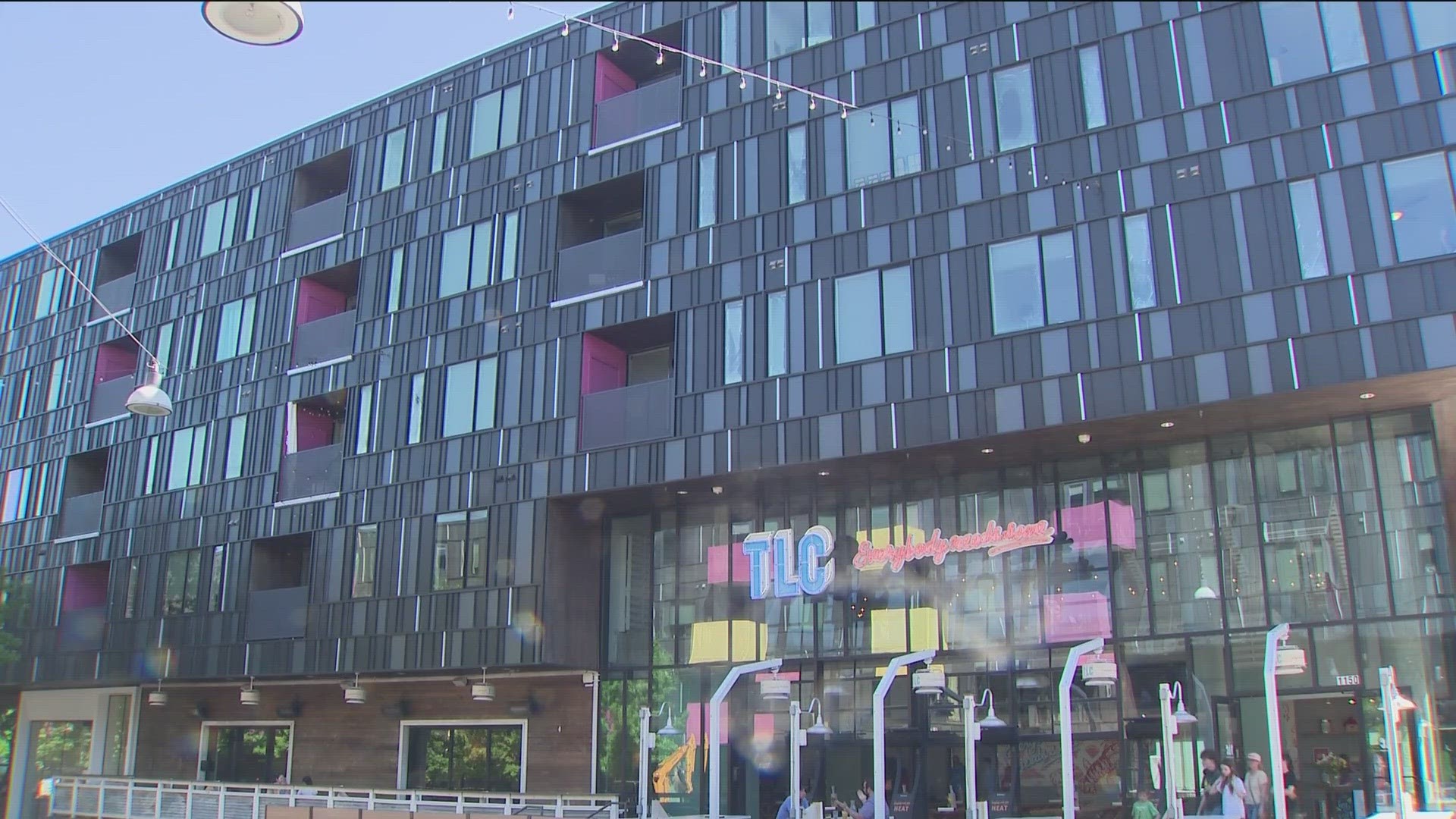AUSTIN, Texas — Austin leaders have introduced a new zoning program, which allows developers to build higher buildings in some parts of the city as long as it helps address the housing crisis.
The new tool is known as the DB90 program. It was signed off by council members in an effort to comply with a court ruling, which invalidated three similar zoning programs struck down by a Travis County Judge back in December.
DB90 would let Austin developers build up to 90-feet high on commercially zoned properties in exchange for affordable housing. The program opens up a new zoning category but developers will still go through the normal zoning process, according to District 5 Councilmember Ryan Alter.
"It is going to be those developers who choose to participate and probably those developers who build the more large scale mixed use projects," Alter said.
Alina Carnahan, vice president of the Real Estate Council of Austin, explained that the goal is to bring in more of the mixed-use building to the city.
"This is one of the ways we can incentivize private builders like our members to be building housing that's affordable to mixed income levels. And the thing is, you have there's a really fine balance," Carnahan said.
RELATED: 'The potential here is great' | Austin City Council approves $87M to buy land for new neighborhood
However, a hiccup that the city faced was notifying people of these plans.
A lawsuit centered on three ordinances passed by the city:
- Vertical Mixed Use II Ordinance
- Residential and Commercial Development Program
- Compatibility Ordinance
Property owners argued there was a lack of proper notice, and in turn, a judge ruled in their favor, which scrapped the plans and led to Austin leaders reviving the affordable building program now known as DB90.
Since then, lavender public notices have been released to the public to alert people zoning changes so there is an opportunity for them to voice their thoughts and concerns, which Carnahan said could pose a challenge.
Alter noted the city is righting its wrongs, and the rules are clear going forward.
"Now we know and we're going to follow the rules to the tee," Alter said. "We are going to send out those notices and make sure that anyone who is affected or in the area that's affected not only knows what's going on, but has the protest rights associated with it."
KVUE reached out to the attorney who helped the property owners sue over those previous zoning changes and asked about their thoughts over the new program. Doug Becker released the following statement:
“At long last, the City of Austin, having decisively lost a trial, an appeal, and a hearing on Plaintiff’s Motion to Enforce the Order entered at trial, recently appears to be making an effort, at least, to comply with the rulings of five different Judges regarding their statutory duty to inform property owners of proposed zoning changes that will affect the use of their property, and to honor their protests. I am not yet prepared to say that the City’s efforts either comply or fail to comply with the law.”
Developers will have the option if they do want to apply for the program. Carnahan said members at the Real Estate Council are excited to use it and hopefully this time around there are no more mix-ups.
"We want to work with our neighborhoods. We want to work with our council members. We want to work with our small business owners and have a more collaborative effort to talk about what do we want to see as a city? How can we build it?," Carnahan said. "Because, ultimately, our members are the ones building it and we've got to make it work."
Boomtown is KVUE's series covering the explosive growth in Central Texas. For more Boomtown stories, head to KVUE.com/Boomtown.

